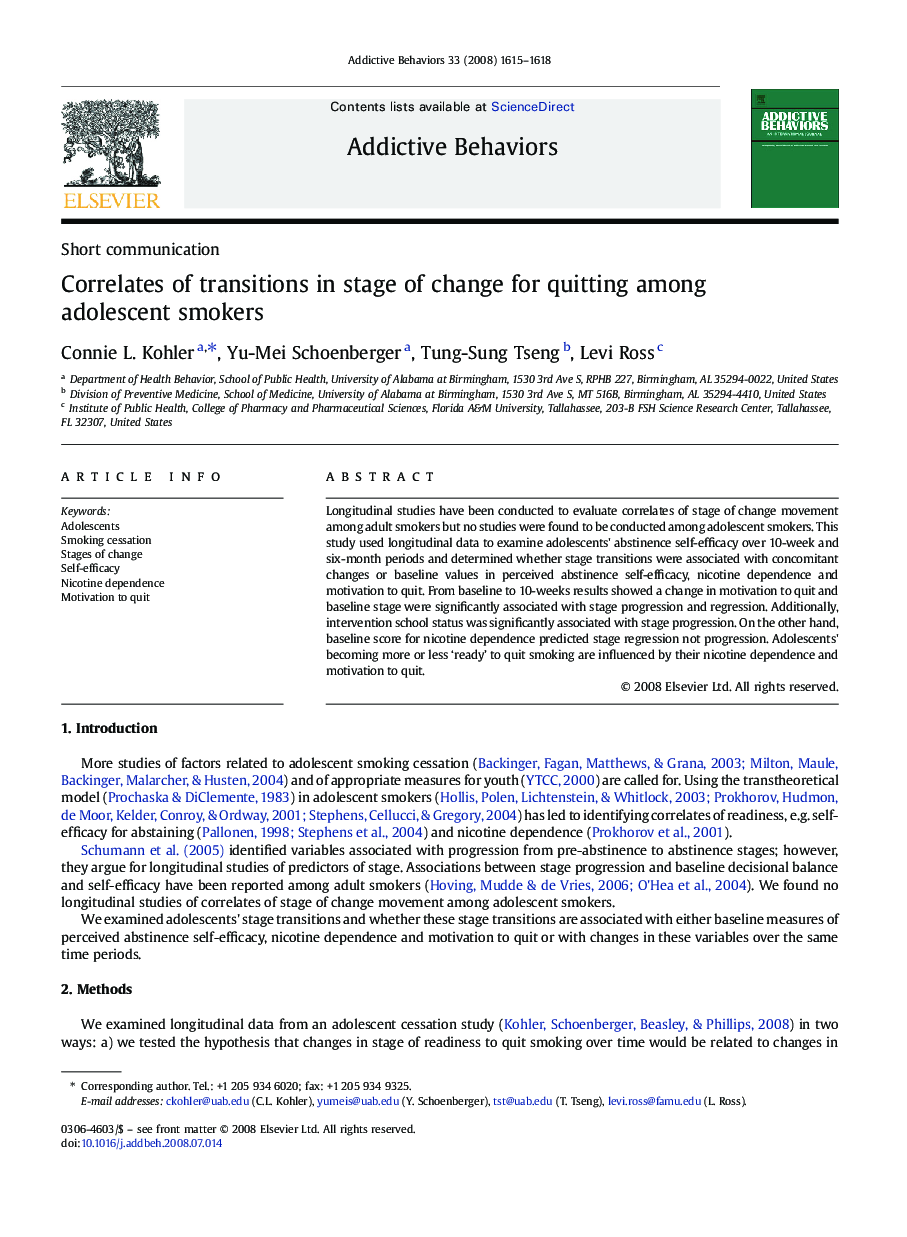| Article ID | Journal | Published Year | Pages | File Type |
|---|---|---|---|---|
| 900434 | Addictive Behaviors | 2008 | 4 Pages |
Longitudinal studies have been conducted to evaluate correlates of stage of change movement among adult smokers but no studies were found to be conducted among adolescent smokers. This study used longitudinal data to examine adolescents' abstinence self-efficacy over 10-week and six-month periods and determined whether stage transitions were associated with concomitant changes or baseline values in perceived abstinence self-efficacy, nicotine dependence and motivation to quit. From baseline to 10-weeks results showed a change in motivation to quit and baseline stage were significantly associated with stage progression and regression. Additionally, intervention school status was significantly associated with stage progression. On the other hand, baseline score for nicotine dependence predicted stage regression not progression. Adolescents' becoming more or less ‘ready’ to quit smoking are influenced by their nicotine dependence and motivation to quit.
